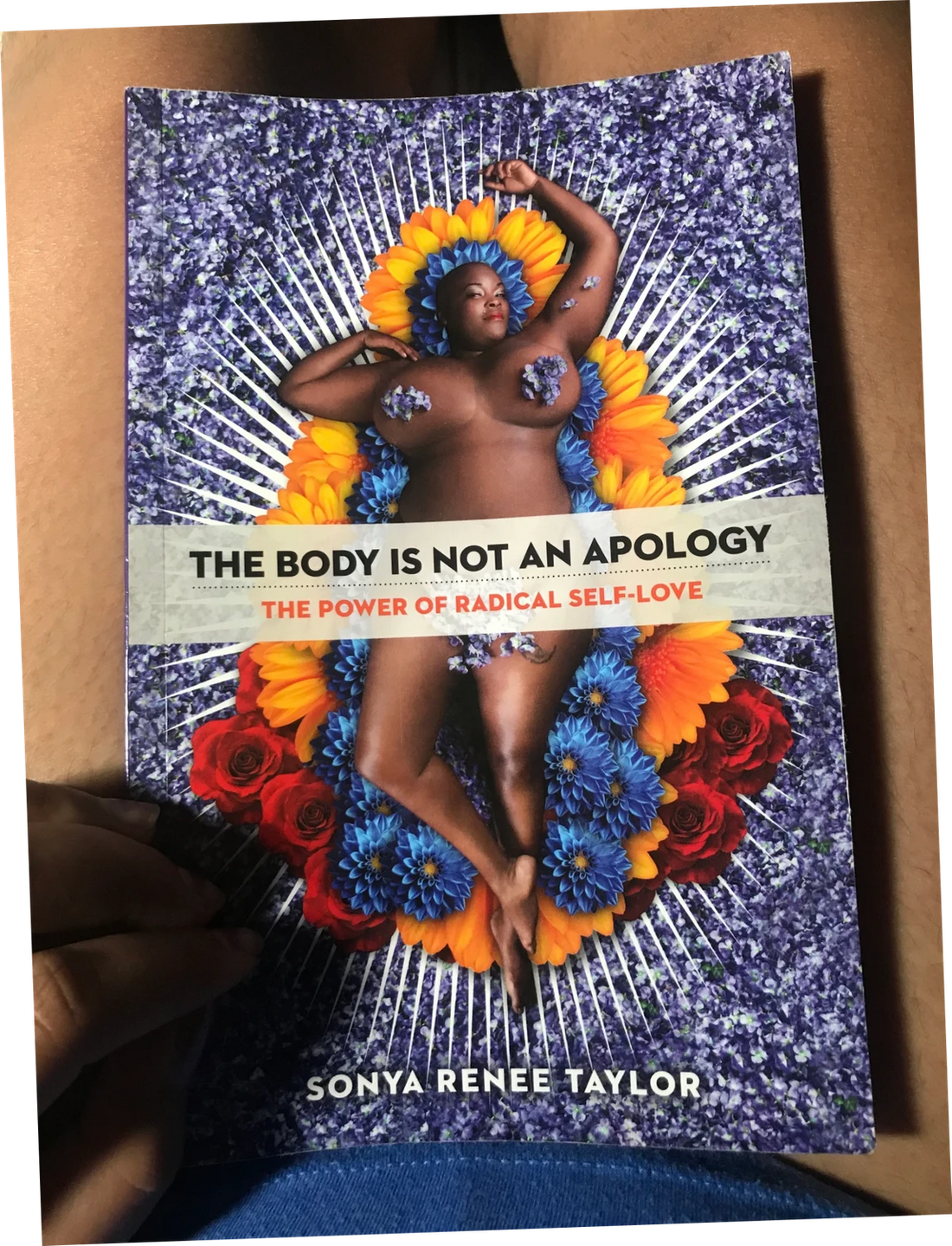
Reading: "The Body is Not an Apology"
Share
I’ve been trying to read a book for fun since before I started my Master’s, but starting the Master’s killed that dream. You see, I finished my Master’s 2 years ago, then I started/bought/picked out tonnes of books to read (not to mention all the abandoned books in my ‘carts’ and wish-lists) but the issues at hand is: I still haven't picked up a book and finished reading it, for fun.
I'm haunted by all the half-read books I've bought and borrowed.
But here’s the thing, I’m halfway through a book I started reading this week. So how did this happen?
Here’s the facts:
- I’m reading this book for fun
- I’ve wanted to read it since last year
- Someone once gifted me money to buy this book, I wanted it so badly, but had no disposable income at that time -- and I ended up using the money to buy groceries
- I noticed it on my sibling’s bookshelf this week, and just took it to bed with me
- I spent the time I would’ve spent scrolling through Instagram, talking to a partner or watching Netflix, reading the book instead.
- I’m feeling inspired to finish this book
- I’m feeling inspired to read more
All of this being said, I’m feeling inspired to start a book club (current population: 1), maybe you want to read, discuss and be mutually accountable?
As you can tell by the title of this blog, the book that sparked all of this joy is The Body is Not an Apology.
I think what I like about it so far, is the fact that the writing is accessible and also simultaneously reminiscent of academic writing.
You might be wondering, ‘Pree, how can something be written in a way that’s academic and accessible’?
Well, the author, Sonya Renee Taylor, writes with the accountability of an academic. Each stat has a footnote tacked on the end, and is essentially a journal from Taylor’s past workshops. The primary research is matched with the auto-ethnography of validated lived experience while not self-referencing as an auto-ethnogrophy, or the fact that it’s triangulated with an ethnography, and qualitative conversation analysis. Taylor also defines jargons and generally writes concisely, in plain English. The line spacing is also formatted in a comfortable way on my copy. #spooniethings
Ultimately, the text book-like prompts within each section, the acknowledgement of the scope of the text (Taylor repeats that reading this book alone can't repair your relationship with your body), familiarity of footnotes, and Taylor's text being about every body, and not just white bodies - really spoke to me and motivated me to keep reading. I wanted to know more. I wanted to learn more. And I think the fact that it has an endorsement from Kimberlé Williams Crenshaw herself made this book a must-read for me. Anyways, if you want to discuss this book or join my scrappy book club, drop me a line on Instagram, or via email!
Instagram: @preezilla @stickymangos
Email: preeyarehal @ gmail . com (remove spaces when addressing the email)
Happy reading!
Pree.
